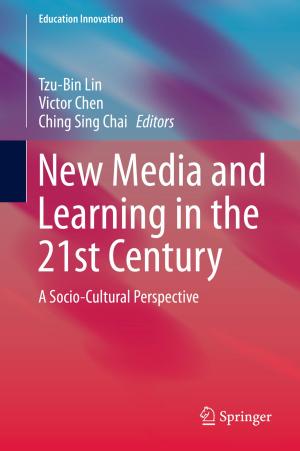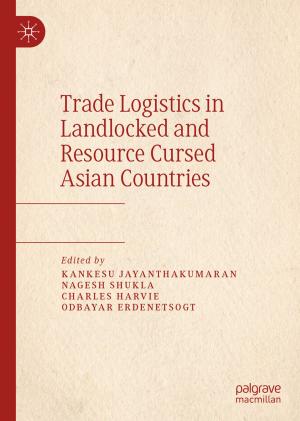Banana: Genomics and Transgenic Approaches for Genetic Improvement
Nonfiction, Science & Nature, Science, Biological Sciences, Biochemistry, Botany| Author: | ISBN: | 9789811015854 | |
| Publisher: | Springer Singapore | Publication: | September 8, 2016 |
| Imprint: | Springer | Language: | English |
| Author: | |
| ISBN: | 9789811015854 |
| Publisher: | Springer Singapore |
| Publication: | September 8, 2016 |
| Imprint: | Springer |
| Language: | English |
Bananas and plantains are among the most important food and cash crops in the world. They are cultivated in more than 135 countries, across the tropics and subtropics, with an annual global production of ca. 130 million metric tonnes. Though bananas are one of the most important components of food security in many developing countries, banana production is threatened by both abiotic and biotic stresses. These include a wide range of diseases and pests, such as bunchy top virus, burrowing nematodes, black Sigatoka or black leaf streak, Fusarium wilt, etc.
In recent years, considerable progress has been made and several biotechnological and genomic tools have been employed to help understand and unravel the mysterious banana genome. Molecular and genomic studies have helped to decipher the Musa genome and its evolution. Genetic linkage map and whole genome sequencing of both Musa acuminata and Musa balbisiana (progenitors of cultivated banana) have completely changed the way of thinking and the approach on banana crop improvement. Whole-genome sequencing has helped to improve the selection of quantitative traits such as yield, as well as the selection of optimal parents for developing required hybrids in breeding programs. Gene isolation and the analysis of mutants have helped in the characterization of genes of agronomic value and the associated regulatory sequences. With the advent of molecular markers and new statistical tools, it is now possible to measure the diversity, identify genes and useful alleles linked to important agronomic traits. Further these alleles can be incorporated into cultivars through marker assisted selection or through transgenic approach. Transgenic approaches are potential tools for direct transfer of these genes into popular cultivars, which are generally not amenable for conventional breeding techniques, in specific with crops such as bananas which are sterile, triploid and heterozygous thereby making it difficult to reconstruct the recurrent genotypes in banana. Transgenic techniques thus have helped overcome the difficulty of working with sterile, triploid banana crop. In the last five years, enormous amount of new information and techniques have been generated for banana. A comprehensive book entitled “Banana: Genomics and Transgenic Approaches for Genetic improvement” on banana genomics, latest transgenic technologies and tools available for improved crop development in banana will address all these requirements.
Bananas and plantains are among the most important food and cash crops in the world. They are cultivated in more than 135 countries, across the tropics and subtropics, with an annual global production of ca. 130 million metric tonnes. Though bananas are one of the most important components of food security in many developing countries, banana production is threatened by both abiotic and biotic stresses. These include a wide range of diseases and pests, such as bunchy top virus, burrowing nematodes, black Sigatoka or black leaf streak, Fusarium wilt, etc.
In recent years, considerable progress has been made and several biotechnological and genomic tools have been employed to help understand and unravel the mysterious banana genome. Molecular and genomic studies have helped to decipher the Musa genome and its evolution. Genetic linkage map and whole genome sequencing of both Musa acuminata and Musa balbisiana (progenitors of cultivated banana) have completely changed the way of thinking and the approach on banana crop improvement. Whole-genome sequencing has helped to improve the selection of quantitative traits such as yield, as well as the selection of optimal parents for developing required hybrids in breeding programs. Gene isolation and the analysis of mutants have helped in the characterization of genes of agronomic value and the associated regulatory sequences. With the advent of molecular markers and new statistical tools, it is now possible to measure the diversity, identify genes and useful alleles linked to important agronomic traits. Further these alleles can be incorporated into cultivars through marker assisted selection or through transgenic approach. Transgenic approaches are potential tools for direct transfer of these genes into popular cultivars, which are generally not amenable for conventional breeding techniques, in specific with crops such as bananas which are sterile, triploid and heterozygous thereby making it difficult to reconstruct the recurrent genotypes in banana. Transgenic techniques thus have helped overcome the difficulty of working with sterile, triploid banana crop. In the last five years, enormous amount of new information and techniques have been generated for banana. A comprehensive book entitled “Banana: Genomics and Transgenic Approaches for Genetic improvement” on banana genomics, latest transgenic technologies and tools available for improved crop development in banana will address all these requirements.















